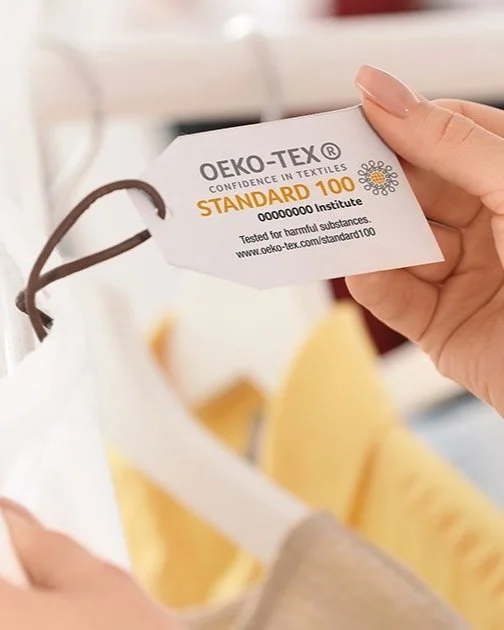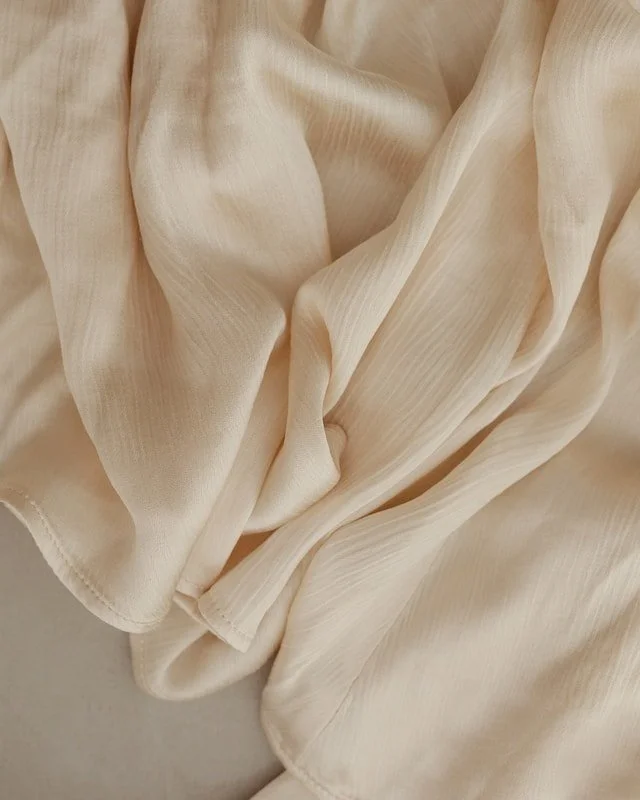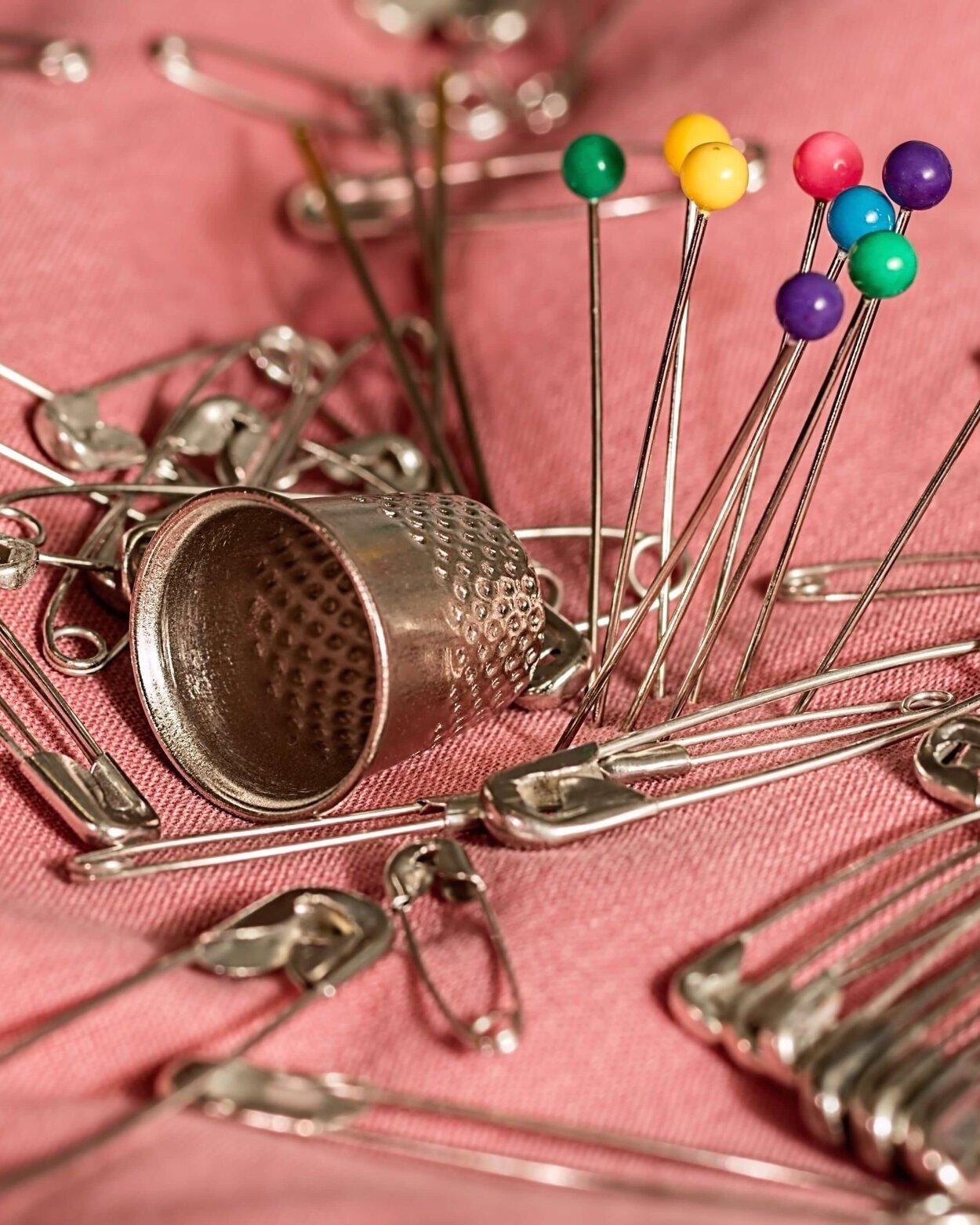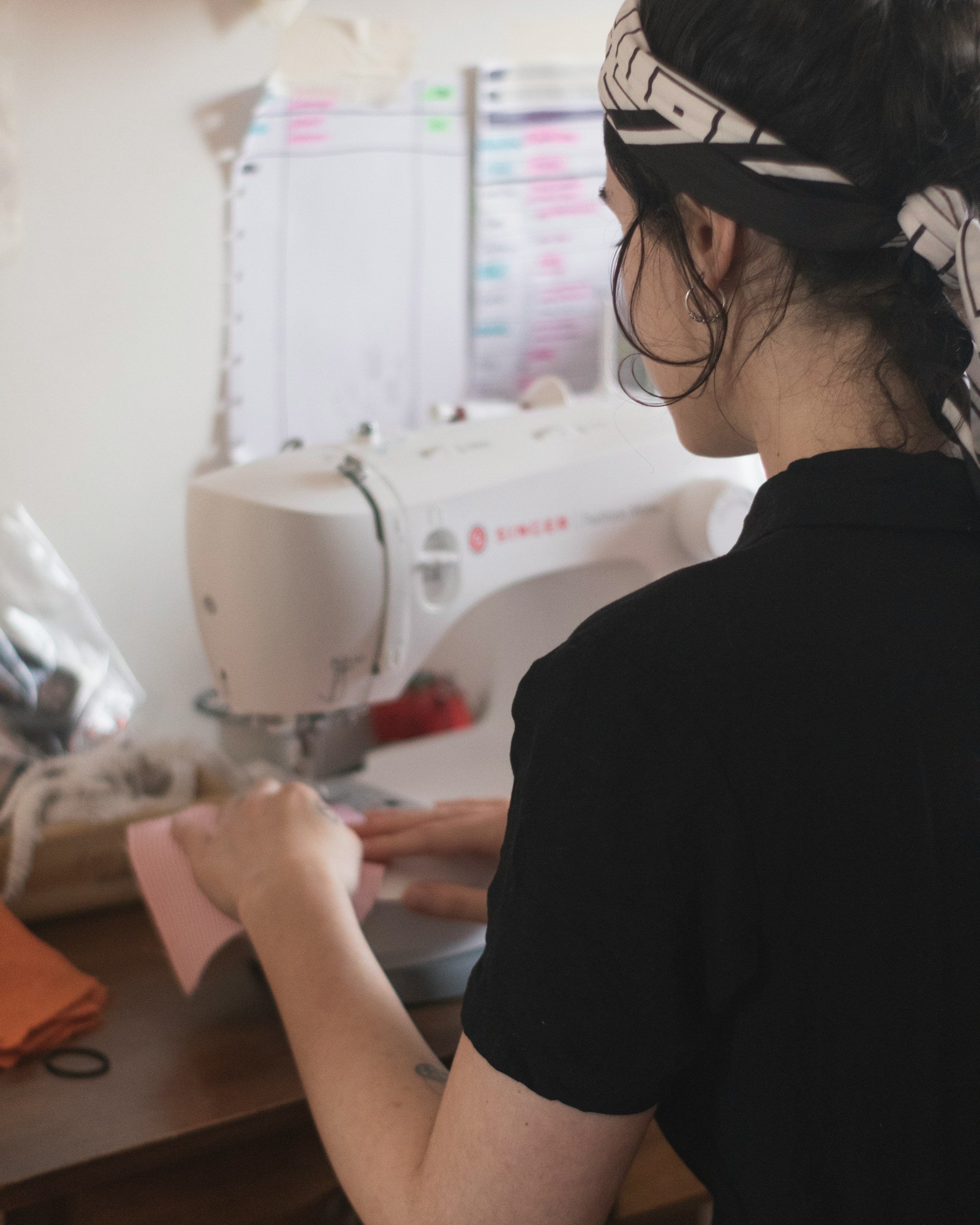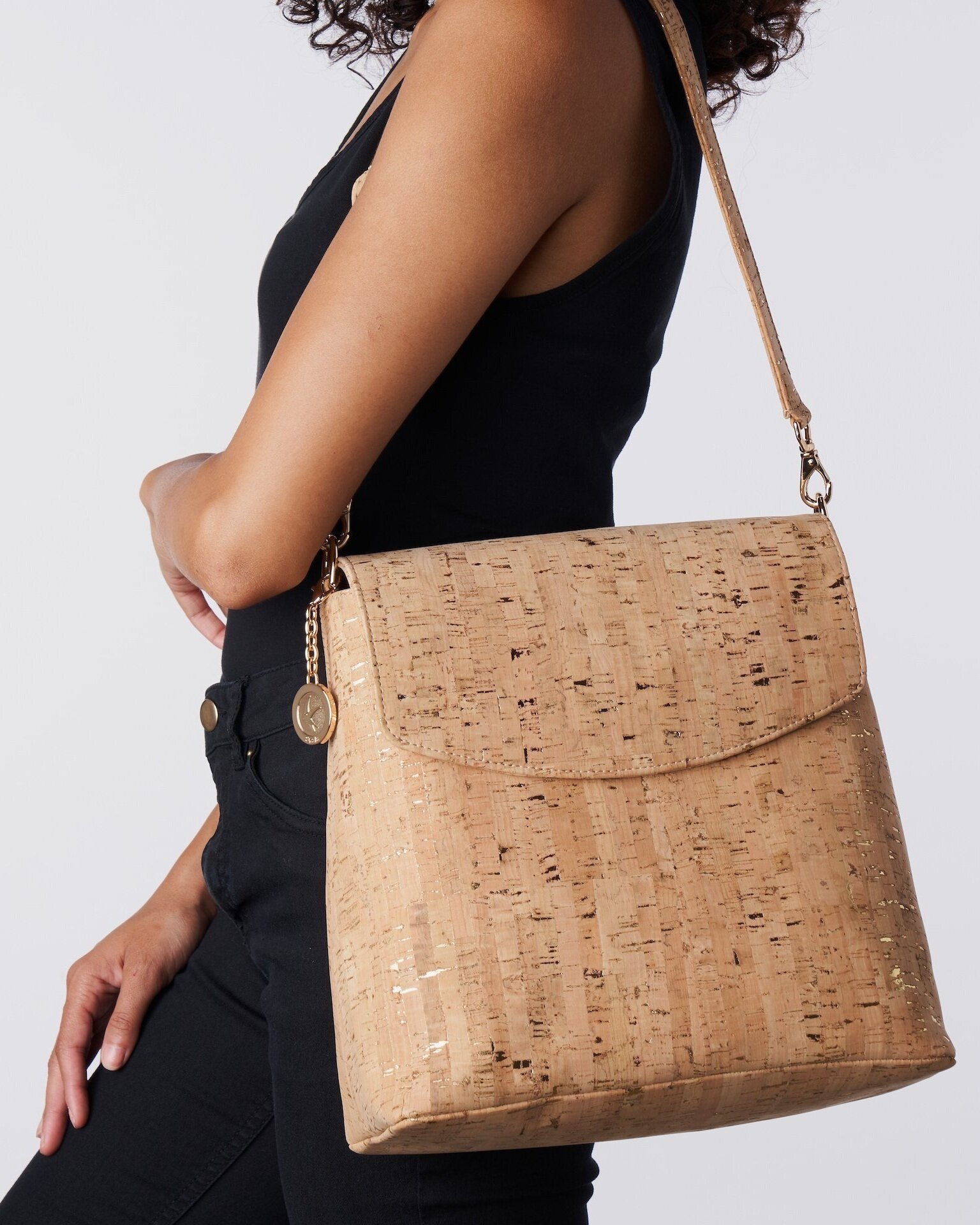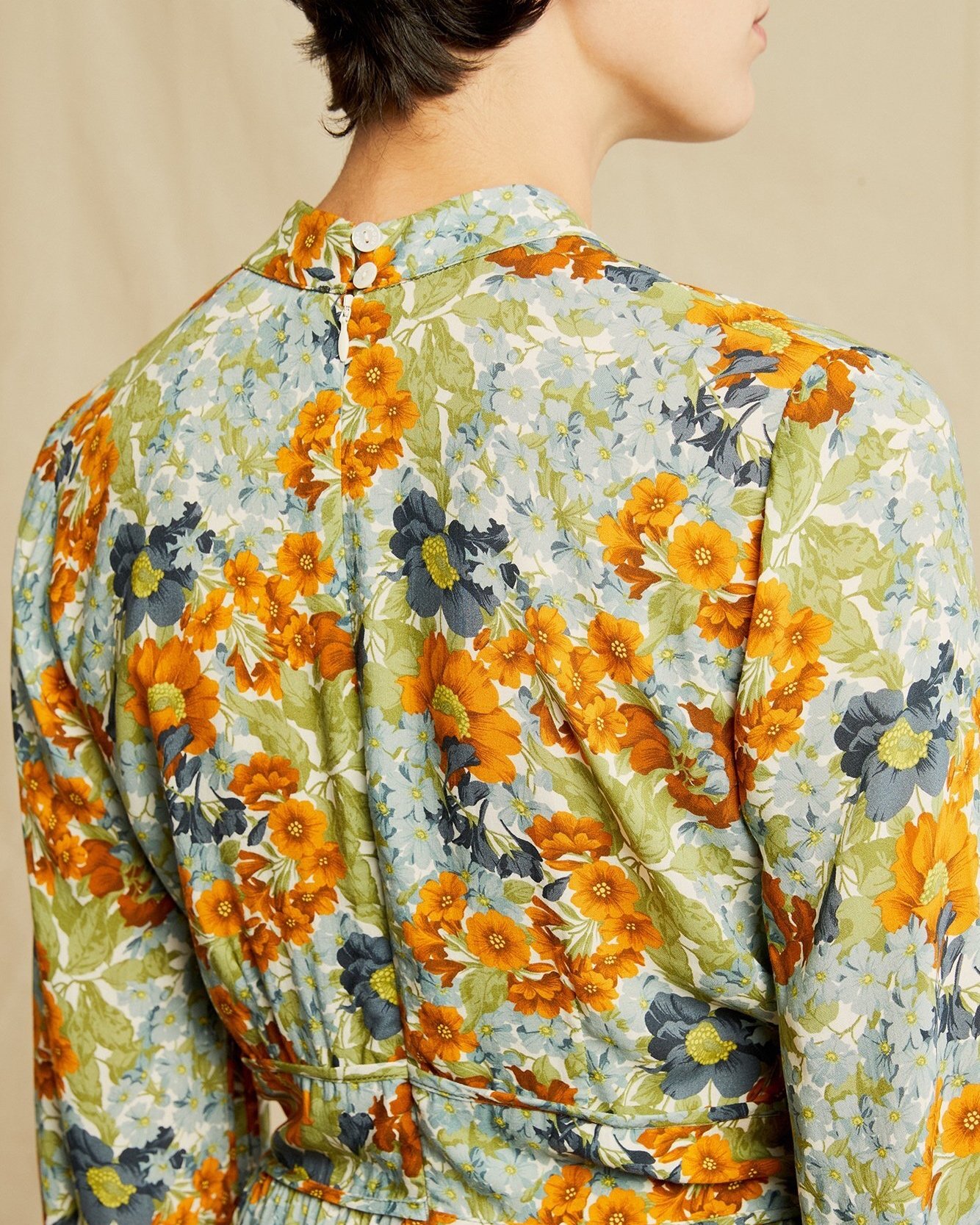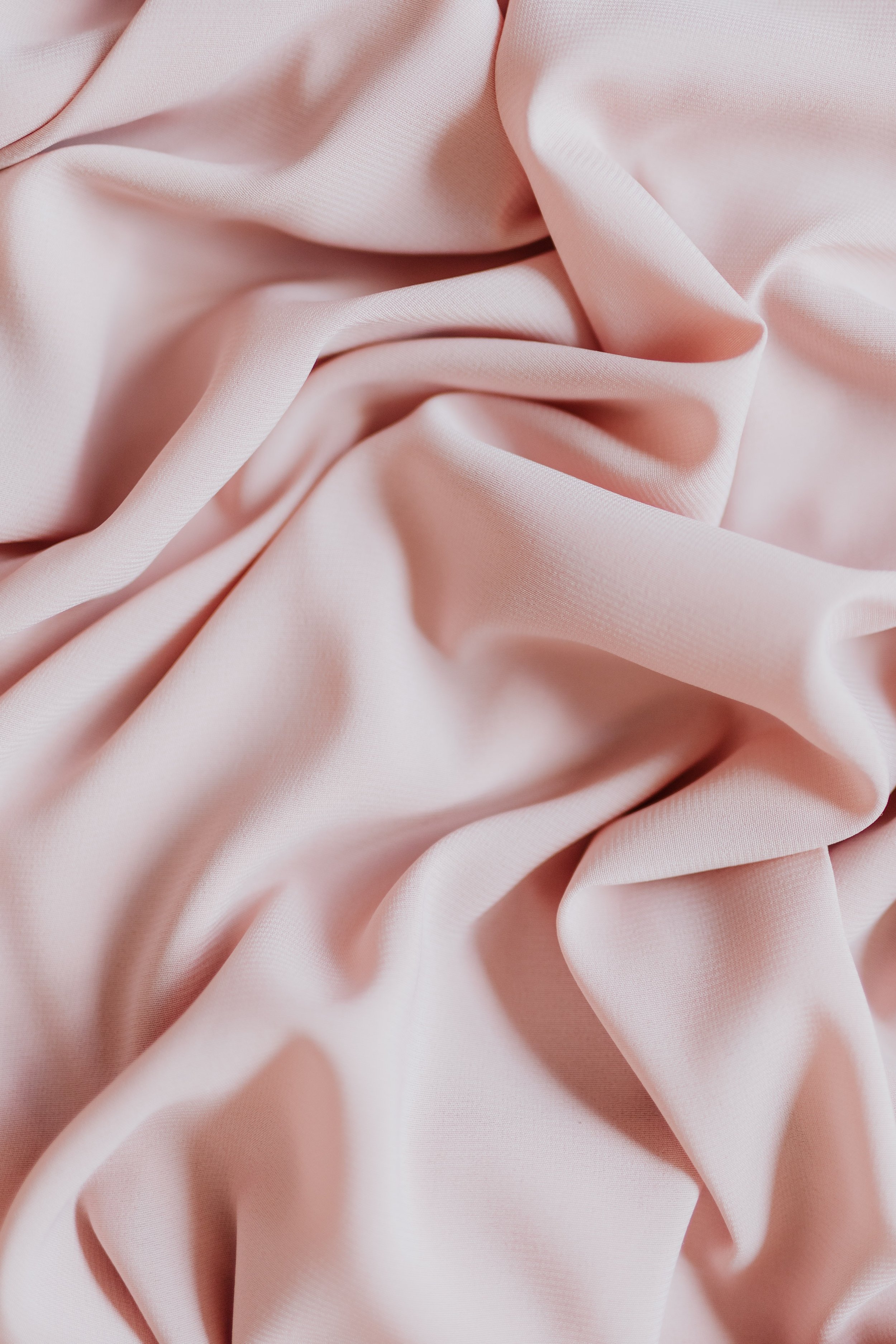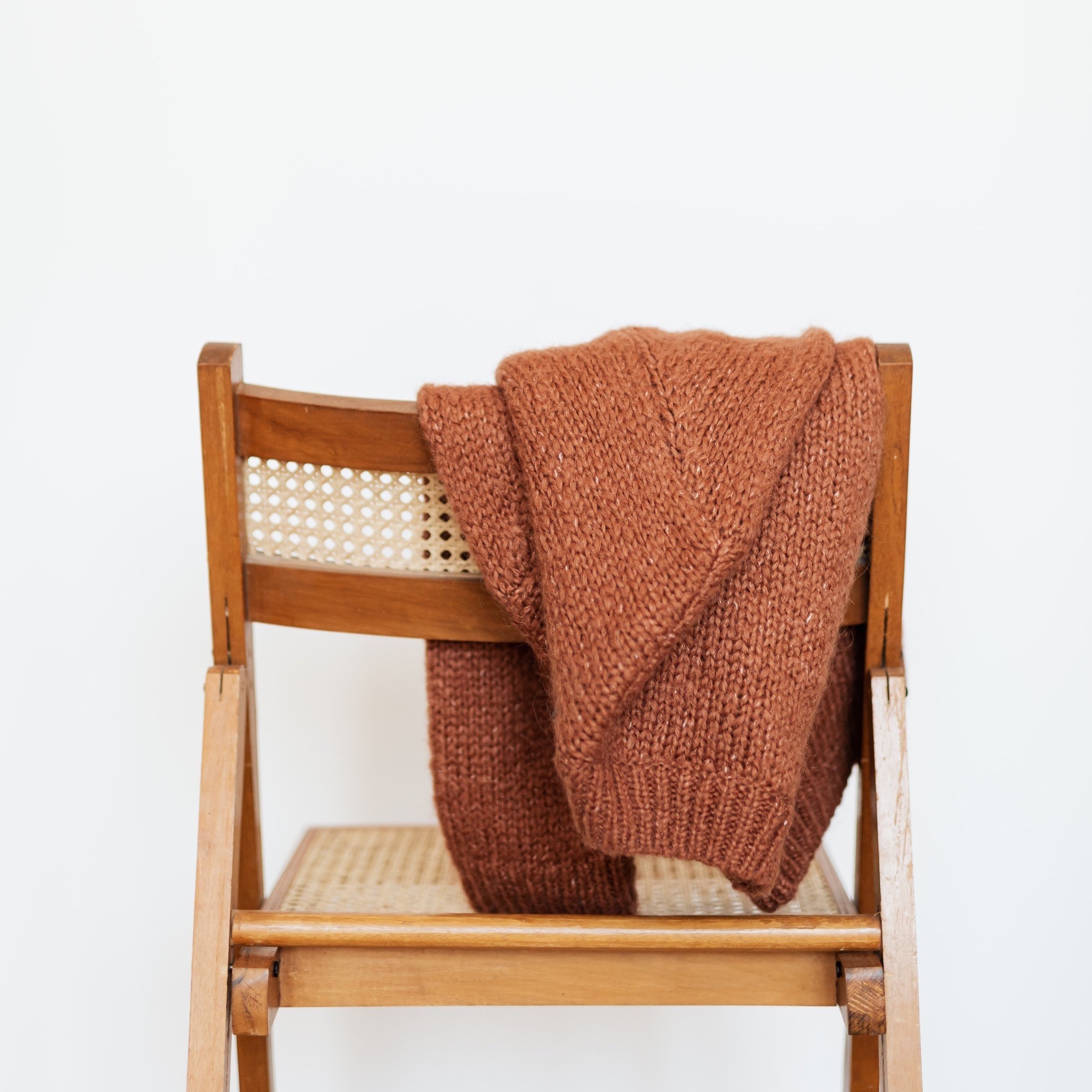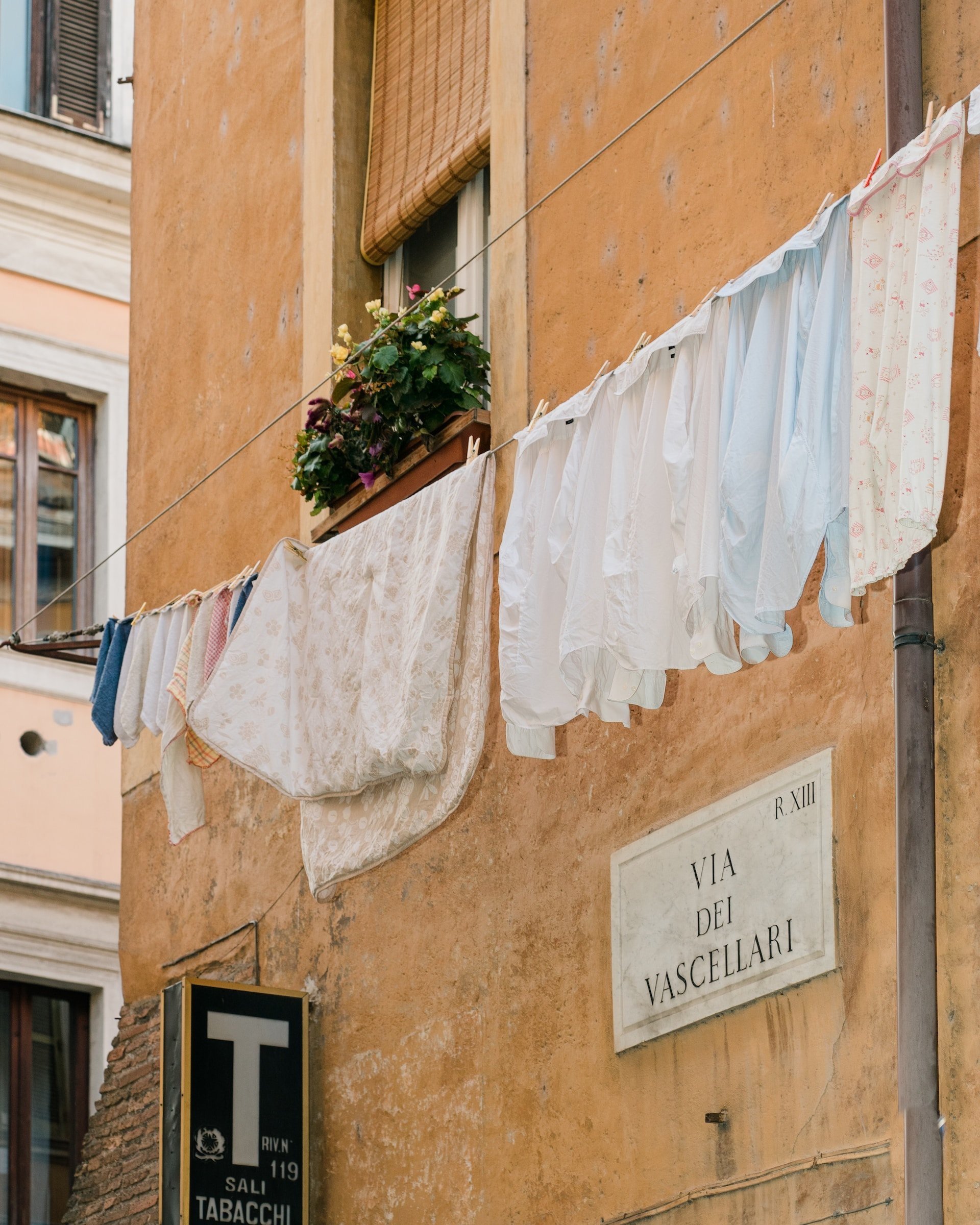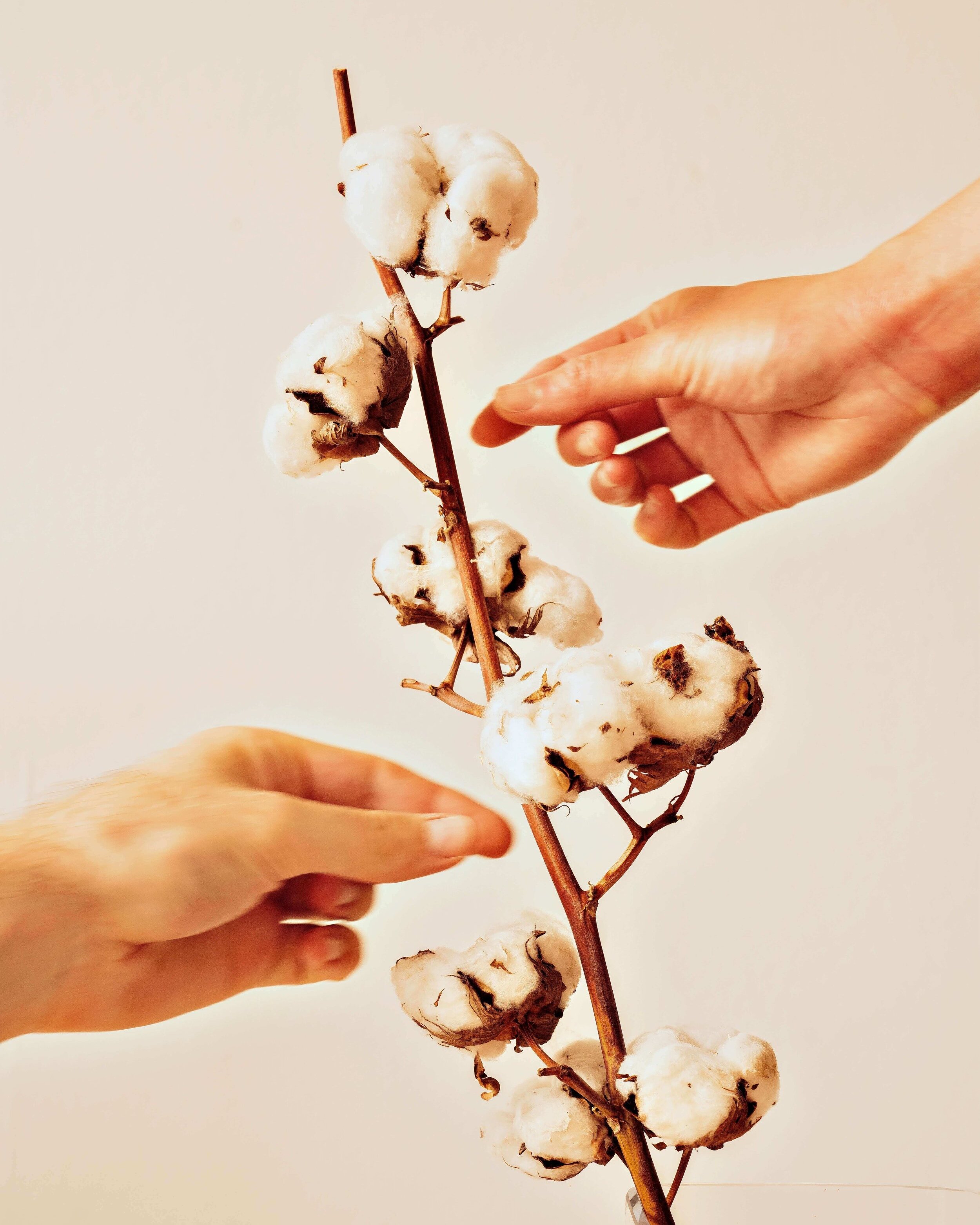How to Have a Sustainable and Non-Toxic Laundry Routine
Sustainable, non-toxic laundry routine
Nowadays, most laundry products on the market are filled with toxic chemicals that can cause a variety of health issues in the long run. Studies have shown that the ingredients found in those products can lead to diseases such as respiratory problems, neurological issues, diabetes, endocrine disruption, reproductive issues, and even cancer.
Not only that but using conventional laundry products to wash our clothes contributes to water pollution and waste.
Click here to learn more about caring for your cotton clothing.
Thankfully, we can easily avoid all those negative impacts by having a more conscious laundry routine.
Here are 7 tips you can follow to have a more sustainable and non-toxic laundry routine!
Wash your clothes less frequently.
Most of us have been brought up with the idea that clothes need to be washed very regularly, or even every day. Yet, many pieces in our wardrobes can be worn at least several times before they need laundering.
Of course, wash your underwear and socks after one use. However, if your shirt isn’t smelly or stained at the end of the day, consider wearing it again before throwing it in the hamper.
Things like bottoms, sweaters, and garments that don’t directly touch your skin can also be worn several times.
If something gets a little stain, spot-clean it and wear it again.
Washing your clothes less frequently will significantly extend their lifespan!
2. Wash full loads and prefer cold water.
Only run your washing machine when it is full. Doing so will help you save water and energy in the long run.
Try to also wash your clothes in cold water if possible to save even more energy.
3. Read fabric care labels.
Make sure you wash your clothes properly by reading their fabric care labels carefully. It is important to know how each piece needs to be washed if you want it to last.
Does it have to be dry cleaned or is it hand wash only? Can you put it in the dryer? What are the ideal washing temperatures to keep it in good condition for longer? Should you wash it in a gentle cycle?
We recommend Dropps for a low-waste, non-toxic laundry detergent!
4. Use non-toxic, eco-friendly laundry products.
Avoid laundry products that contain toxic chemicals such as synthetic fragrances, phosphates, SLS, optical brighteners, nonylphenol ethoxylates, methylisothiazolinone, and chlorine bleach.
Instead, prefer products made with biodegradable, non-toxic, and plant-based ingredients. Brands like Blueland, Meliora, and Attitude offer great options that are better for us and the planet.
They also sell their products using eco-friendly packaging like refills and plastic-free, reusable containers.
Also, consider ditching fabric softener and dryer sheets altogether. If you’re using the dryer to dry your clothes, switch to wool dryer balls.
Click here to find a list of our favorite non-toxic laundry detergents.
5. Wash your synthetics in a mesh laundry bag.
Synthetic clothes shed lots of microfibers when in the wash. A great solution to prevent all those tiny particles from entering waterways is to wash them in a mesh laundry bag, like the Guppyfriend.
You may also want to put your delicates in another mesh bag to keep them from snagging and stretching.
If you want to go even further, you can install a reusable microfiber filter on your washing machine!
You can also throw in a Cora Ball to help gather microplastics.
6. Avoid dry cleaning .
Dryer cleaners usually use perchloroethylene, a solvent that is a potential carcinogen, a reproductive toxicant, a neurotoxicant, and a persistent environmental pollutant.
So try to avoid dry cleaning and hand wash your pieces instead. Alternatively, see if you can find a company that uses non-toxic, sustainable dry-cleaning methods.
7. Air dry your clothes if possible.
If you can, air dry your clothes on a clothesline or a drying rack. Doing this will make them last longer and save a lot of energy!
If you still need to use the dryer, consider using it less often, or at least, for shorter periods.
About the Author
Eva Astoul is a French freelance writer, specializing in content related to sustainability, simple living, and a growth-focused healthy lifestyle. She runs her own blog, Green With Less, to inspire people to live a more minimalist and sustainable life.
MAKE SURE TO PIN THE PHOTO BELOW TO SAVE THIS POST FOR LATER!
Searching For SUSTAINABLE BRANDS?
The Brand Directory features hundreds of sustainable brands approved by us!
We have broken everything down by category for easy shopping, along with discount codes unique to Sustainably Chic viewers.







